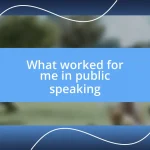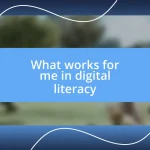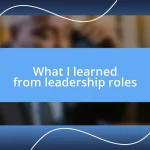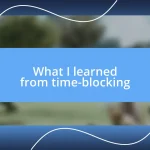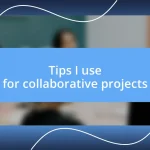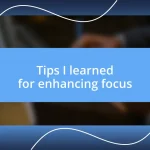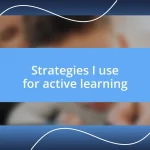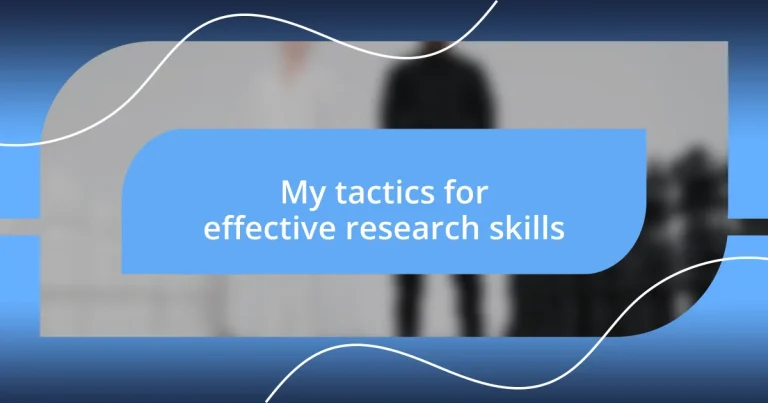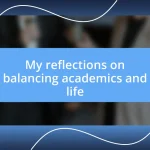Key takeaways:
- Effective research involves critical evaluation, creativity, and engaging with diverse sources beyond just books and articles.
- Identifying credible sources is essential; key criteria include checking the author’s credentials, publication date, and cross-referencing information.
- Continuously improving research strategies through reflection, feedback, and adopting new technologies enhances efficiency and quality of findings.
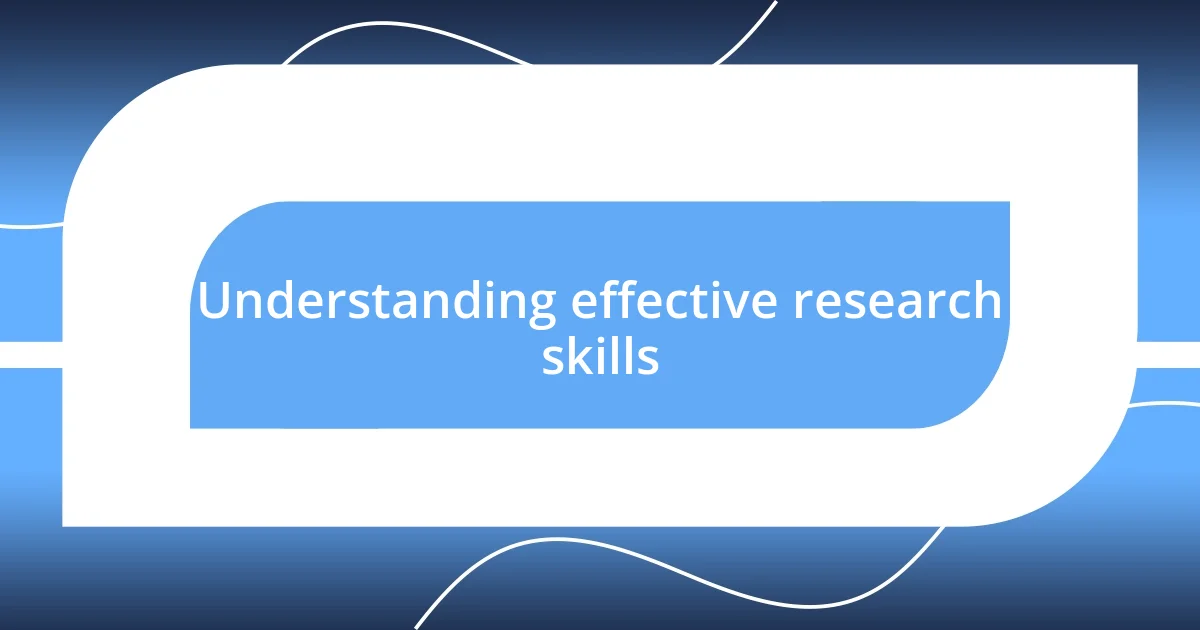
Understanding effective research skills
Effective research skills are not just about locating information; they’re about critically evaluating that information and understanding its context. I remember a time in university when I stumbled upon a source that seemed perfect for my paper, but a small nagging doubt made me dig deeper. That source turned out to be outdated, and my decision to question its relevance not only saved me from potential embarrassment but also taught me the importance of thorough vetting.
Moreover, it’s essential to recognize that effective research is a blend of creativity and analytical thinking. When I approach a new topic, I often ask myself, “What perspective am I missing?” This simple question leads me down interesting paths, uncovering diverse viewpoints that enrich my understanding. Isn’t it fascinating how a single question can expand our horizons?
Finally, I’ve learned that effective research isn’t confined to books or articles; it’s about engaging with various sources, whether they are interviews, documentaries, or even conversations. I once had a conversation with an expert in a field I was exploring, and their insights provided depth I could never have gained from reading alone. Isn’t it amazing how human interactions can illuminate complex topics in ways we never expect?
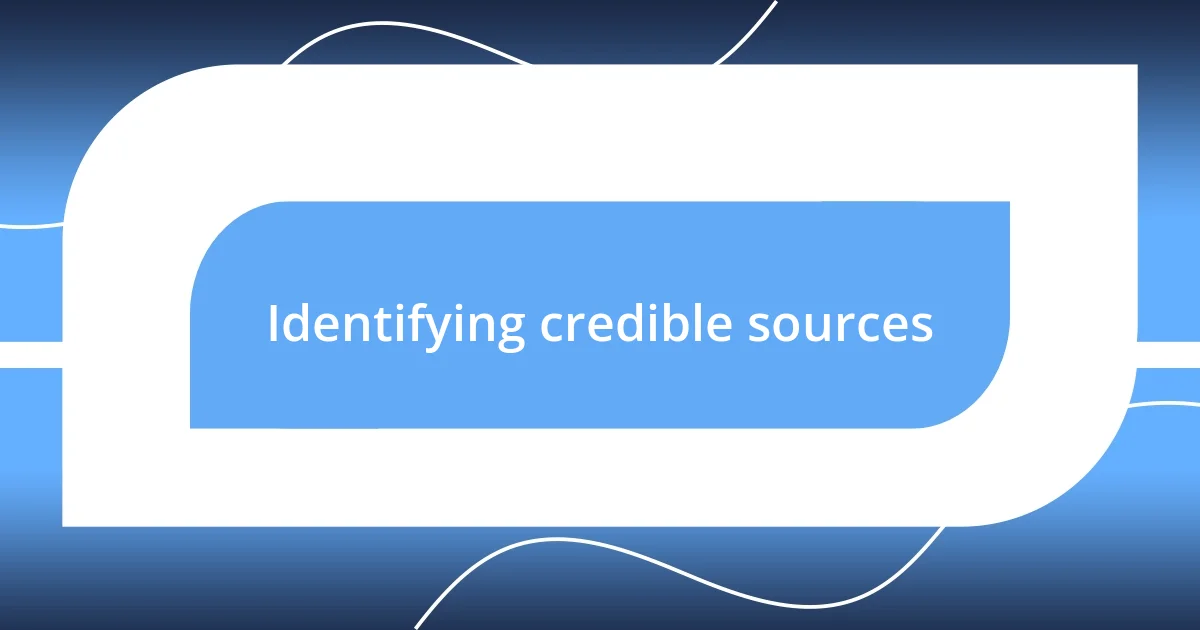
Identifying credible sources
Identifying credible sources is a fundamental step in ensuring the accuracy of your research. When I first tackled this, I found it crucial to analyze the author’s credentials. I remember reading an article that seemed promising, but a quick look at the author revealed they had no relevant background in the subject matter. That made me question the reliability of the information presented.
One strategy I always employ is to check the publication date. There was this instance where I relied on a source that was a couple of years old and, as I later discovered, the field had evolved quite significantly since then. The contrast between old and new data can drastically shift the conclusions we draw, reminding me to stay updated.
Moreover, I often cross-reference information across multiple sources. If I consistently find the same facts across well-respected platforms, I am more confident in the credibility of the data. I recall a research project where I consulted an array of peer-reviewed journals, and it was reassuring to see the same conclusions supported by different experts. This not only bolstered my arguments but also deepened my trust in the information I was presenting.
| Criteria | Importance |
|---|---|
| Author’s Credentials | Helps assess the expertise and reliability of the information. |
| Publication Date | Ensures the information is current and relevant. |
| Cross-referencing | Validates facts through multiple trusted sources. |
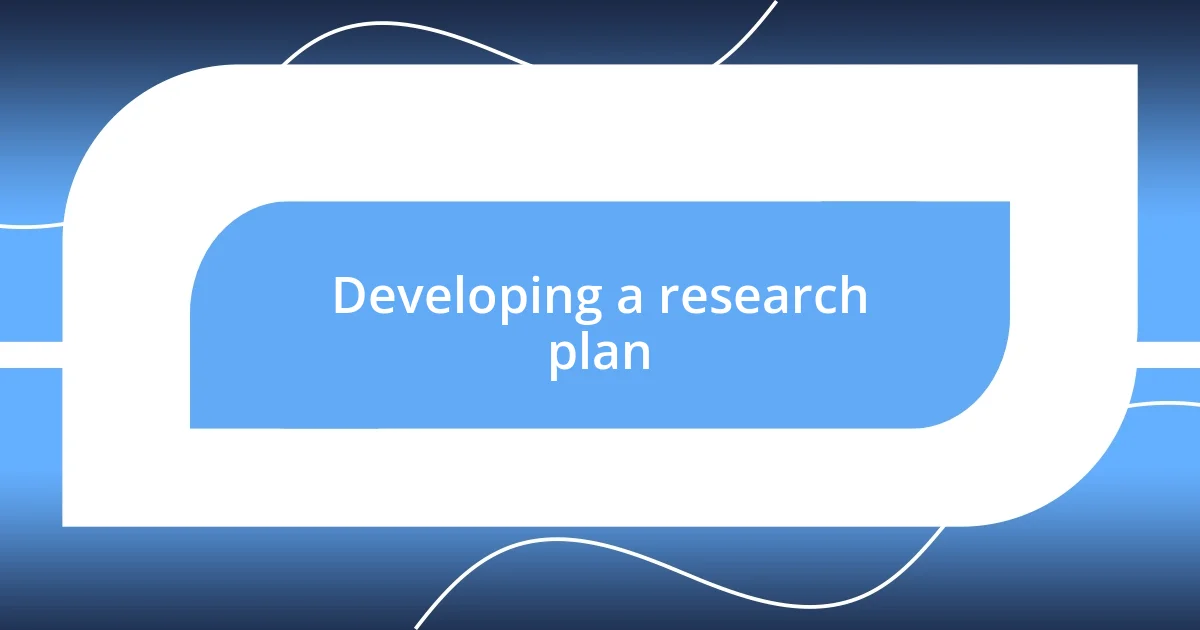
Developing a research plan
Developing a research plan is a crucial step that sets the tone for your entire project. I often feel a sense of excitement when I map out my strategy, as it’s like creating a treasure map to guide my journey. To get started, I like to outline the key questions I want to explore. This helps me stay focused and can even spark interesting sub-questions.
Here are some tips for creating a strong research plan:
- Define Your Goals: What do you want to achieve? Clear objectives keep you on track.
- Identify Key Questions: Frame questions that your research should answer. This narrows your focus.
- Select Your Sources: Decide which types of sources will best inform your research, like academic journals, interviews, or reports.
- Set a Timeline: Allocate time for each stage of your research, which helps in managing deadlines and reducing stress.
I remember when I was working on my thesis; I spent a lot of time drafting my research plan. It was a game changer. It felt like I had a reliable roadmap, allowing me to navigate the sea of information more effectively. I’ve learned that having a well-structured plan not only makes the entire process more manageable but also enhances the quality of your findings. Essentially, it transforms a daunting task into an exciting adventure!
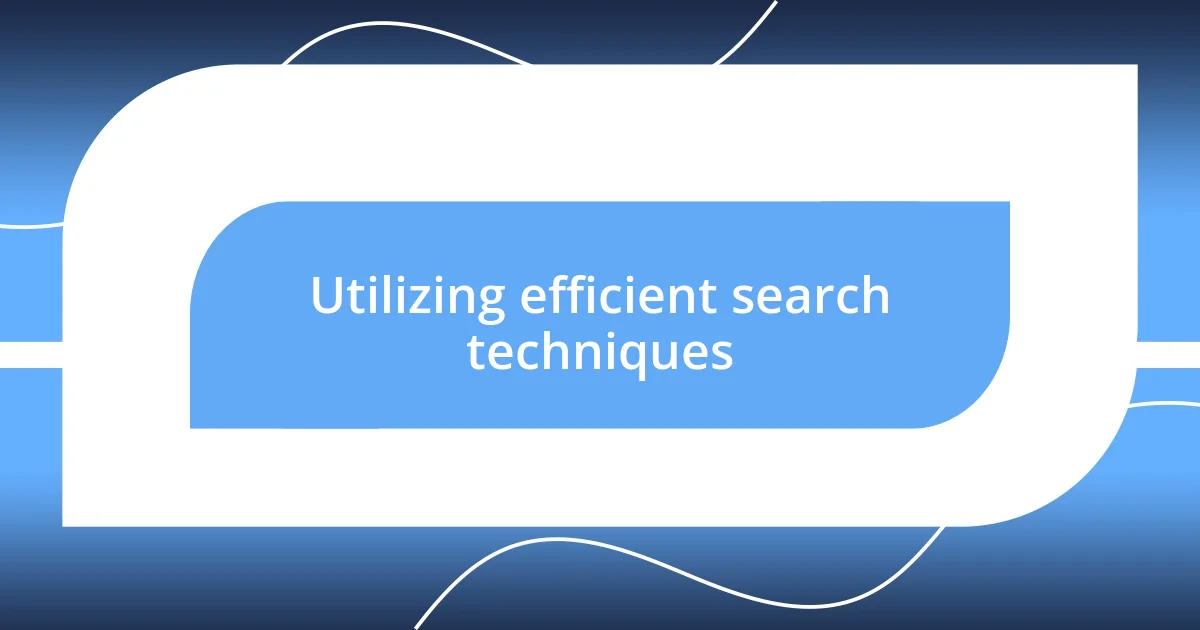
Utilizing efficient search techniques
When it comes to utilizing efficient search techniques, I’ve found that using advanced search operators can drastically improve the quality of my results. For example, enclosing phrases in quotation marks helps locate exact matches in search engines, which is a trick I learned after scanning through pages and pages of irrelevant information. There’s nothing more satisfying than finally finding that perfect quote or statistic right where I expected it!
Another technique I often use is filtering my search results by date or relevance. I remember a time when I was researching healthcare innovations; by applying these filters, I discovered a treasure trove of up-to-date articles I wouldn’t have seen otherwise. It made me realize how much more efficient my research could be if I simply took advantage of the tools at my disposal. Have you ever felt overwhelmed by the sheer volume of information available? It can feel like trying to find a needle in a haystack, but these techniques can work wonders.
Additionally, using academic databases can save you a significant amount of time. When I was knee-deep in a project, I turned to platforms like JSTOR and Google Scholar, which provided vetted articles that were pertinent to my topic. It’s comforting to know that these resources often contain high-quality, peer-reviewed work that makes my research not only easier but also more credible. Why not give it a shot? You might be surprised by the breadth of information you’ll uncover!
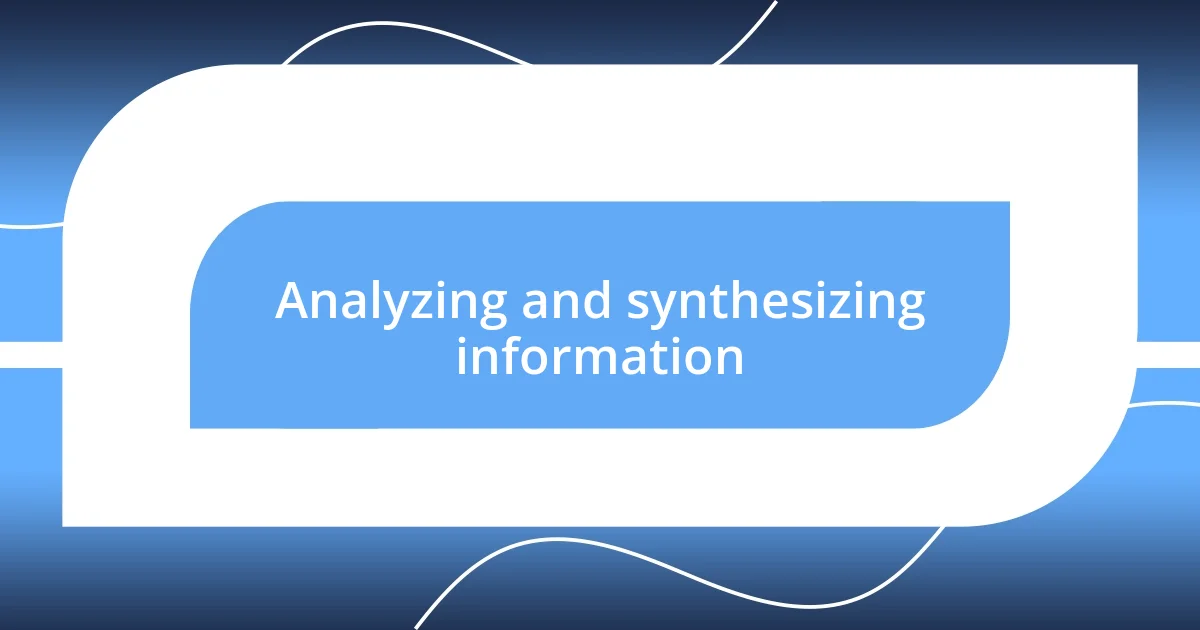
Analyzing and synthesizing information
When I dive into analyzing information, I always remind myself that it’s more than just reading; it’s about understanding the underlying themes and connections. For instance, during a recent research project on climate change, I took meticulous notes, highlighting key arguments and contrasting viewpoints. This method not only helped clarify my thoughts but also allowed me to spot trends and inconsistencies that would otherwise go unnoticed. Have you ever felt like the pieces just clicked together in a puzzle? It’s that moment of realization that makes the effort worthwhile.
Synthesizing information is where the magic really happens. I often liken it to cooking—a little bit of this and a dash of that can create a recipe for understanding. While working on a project about educational methods, I combined insights from various studies and articles to create a comprehensive perspective. This blending of sources helped me craft a narrative that was richer and more nuanced. Have you experienced the joy of transforming isolated facts into a compelling story? There’s something incredibly satisfying about weaving together different threads of information.
What I find essential in this process is maintaining an open mind. It’s easy to become attached to one idea or source, but I’ve learned that the best analyses come from considering diverse viewpoints. I remember grappling with conflicting data during a research paper on economic policies, and it was eye-opening to see how different contexts influenced outcomes. Did I ever feel frustrated? Absolutely! But that challenge ultimately deepened my understanding and made my conclusions more robust. How do you approach conflicting information in your own research? Embracing the complexity can turn a simple analysis into a comprehensive synthesis.
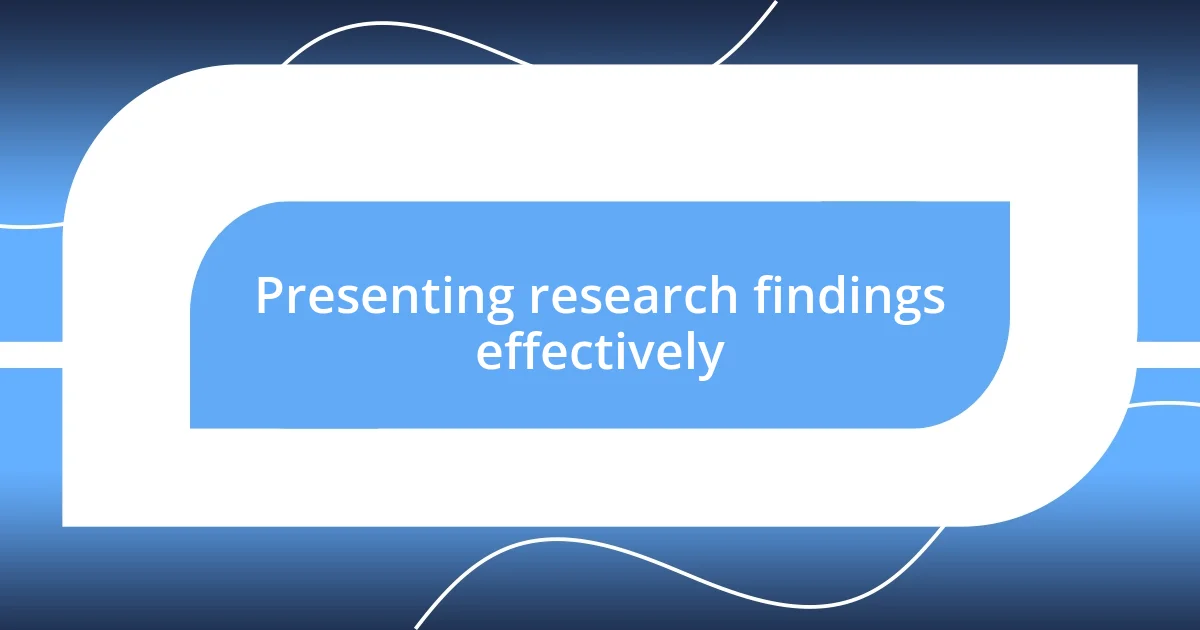
Presenting research findings effectively
Effectively presenting research findings is about clarity and engagement. I remember presenting my findings on renewable energy at a local conference. Instead of overwhelming the audience with dense data, I created visuals that highlighted key points. These visuals became discussion starters, effortlessly guiding the audience’s attention. Hasn’t anyone felt the difference visuals make in understanding complex topics?
Incorporating storytelling into my presentations has been transformative. During a project on mental health, I shared a compelling case study that resonated with the audience, making the data feel personal and relatable. It was incredible to see people nodding along, connected to the message. Don’t you think narratives breathe life into numbers?
Finally, practicing my delivery has been crucial. I often rehearse in front of a mirror or record myself to analyze my pacing and tone. This approach allows me to refine my presentation and ensure I’m conveying my points effectively. Have you noticed how a well-paced speaker can captivate an audience? It’s all about connecting—not just presenting.
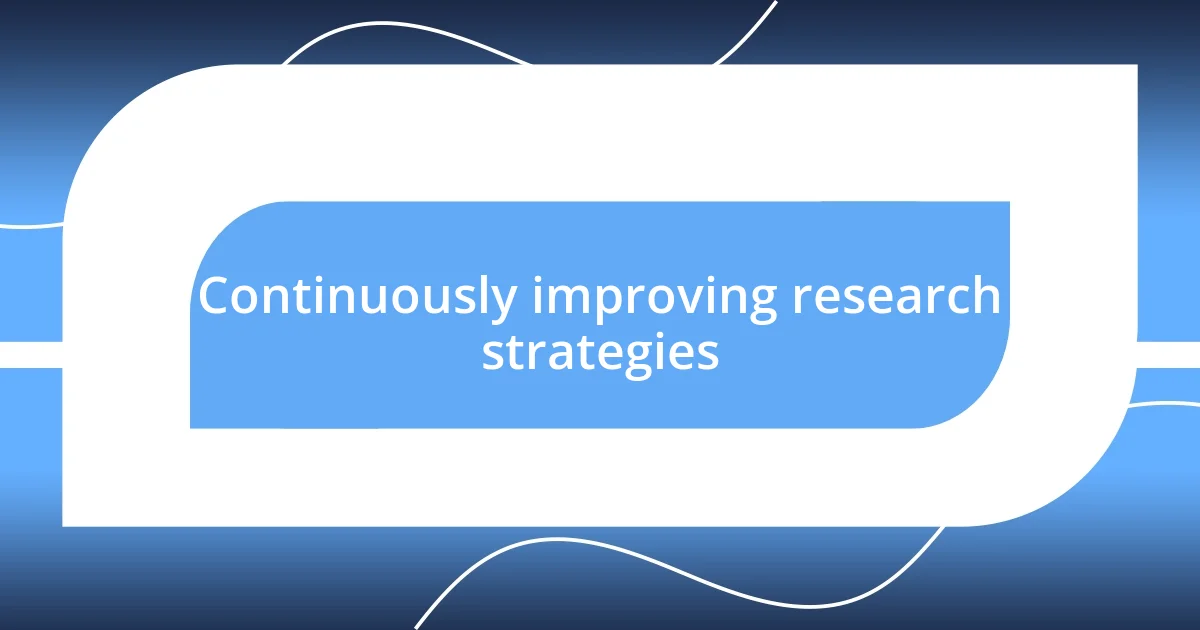
Continuously improving research strategies
I believe that continuously improving research strategies requires a willingness to adapt and learn from each experience. For example, after a particularly challenging project on social media impact, I realized the importance of seeking feedback from peers. Their insights were invaluable, prompting me to refine my search techniques and broaden my resource pool. Have you ever found that outside perspectives can reshape your approach?
In my journey, I’ve found that setting aside time for regular reflection significantly enhances my research strategies. I often journal about what went well and what didn’t after completing a project. This habit has illuminated recurring patterns in my process, revealing areas for growth that I hadn’t noticed before. Isn’t it interesting how a simple practice can open up new avenues of improvement?
Moreover, embracing new technologies and tools can drastically change how we conduct research. Recently, I started using advanced reference management software, which has streamlined my citation process and kept my sources organized. This shift transformed my workflow, saving me hours of tedious tasks. Have you experimented with any tools that made a noticeable difference in your research efficiency?

